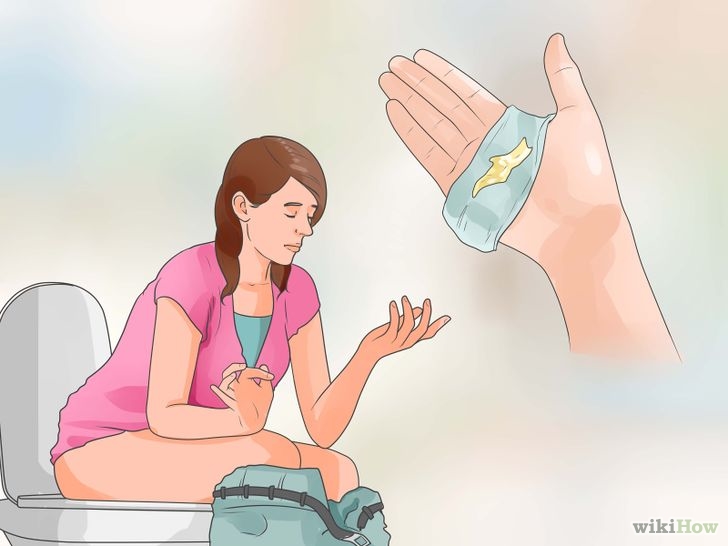The topic of infertility can be a very touchy one but unfortunately it is the reality of many couples. Several factors affect fertility and it is important to note that these factors could be male as well as female. Therefore fertility should never be seen as the woman’s problem alone.
The idea of this post is to highlight some symptoms that may hint at a cause of female factor infertility. It’s important to know the signs of infertility, because can often indicate a larger problem that can affect your overall health, whether you’re trying to have kids right now or not. If you think there’s something wrong, listen to your body and talk to your doctor.
So here’s a list that’s by no means exhaustive—for more information, you should always talk to your doctor in person—but it does hit on some of the biggest signs that should make you consider paying your doctor a visit.

Your Periods are Unusually Painful
Just so you know, you shouldn’t have to clear your calendar when your period’s coming because you know you’ll be in bed in agony. In fact, it may be a sign of endometriosis. This type of pain is more than just a little cramping here and there, but enough pain that it affects your lifestyle. You can’t go to work or do the things you normally do. The condition, which happens when the lining of your uterus (endometrial tissue) grows outside of it, affects up to half of infertile women, according to certain studies. Hormonal birth control pills are one treatment. Talk to your doctor if period pain is messing with your ability to live comfortably. There’s treatment available so it doesn’t have to be your normal.

Your Hands and Feet are Always Cold
If your extremities are always cold, (especially when you live in a tropical climate like Nigeria) something may not be completely right. Get your thyroid hormone levels checked ASAP. Cold feet and hands are one sign of hypothyroidism (or an underactive thyroid gland). Low levels of thyroid hormone causes your metabolism to slow down generally. That can lead to irregular ovulation and affect your menstrual cycle. A blood test will tell your doctor if your levels are normal. Other signs of thyroid dysfunction include constipation, forgetfulness, dry skin, and being unusually tired.
Your Period is MIA—or Constant
Many times Aunt Flo feels like such an inconvenience so while you might feel lucky to skip a period (or five), that can be a sign of what doctors call “ovulatory dysfunction. Your ovary has to release an egg in order to be fertilized, and if you’re not ovulating at all, you won’t get your period. If you have cycles that are longer than every 35 days, you should get checked out, as well as if your period is missing altogether. Also, keep a heads up if you get your period too frequently—that’s every 21 days or less—because it may be another sign of an ovulation problem.

Your Nipples are Leaking
If you’re not pregnant or breastfeeding, nothing should be coming out of your nipples. If they are leaking fluid, it may be a sign of a condition called hyperprolactinemia, which means that you’re body is producing too much of the breastfeeding hormone prolactin. Causes can range from thyroid problems to medications to a (normally) benign tumor on your pituitary gland. When prolactin levels are high, it affects your hormonal balance and may tell your ovaries to go on leave. Don’t be shy about mentioning any weird symptom to your gynecologist—they’ve heard it all. A simple blood test can identify this problem, and medications can treat most cases.

You’re Very Overweight
If your BMI is 30 to 40, you qualify as obese, which according to several studies can compromise fertility. They note that obesity is the cause of six percent of infertility. Reproductive hormones can be stored in body fat and mess with the area of your brain that tells your ovaries it’s go-time, so if you’re trying to get pregnant or know you will be soon, talk to your doctor if you’re concerned that your weight could lower your odds of conceiving, so that together you can come up with a sustainable plan to achieve a healthy weight.

You’re Sprouting Facial Hair
Hair growing profusely in places you wouldn’t expect (like your face), is a hallmark symptom of PCOS, or polycystic ovary syndrome. It’s also marked by acne and unpredictable periods. The condition means your reproductive hormones are out of whack, which can impair your ovaries’ ability to make or release an egg. PCOS is one of the most common, but treatable causes of infertility in women. Medication like birth control can help manage the condition, also reaching and maintaining a healthy weight helps.

You Have a History of Gonorrhea
The common sexually transmitted disease can come with a few symptoms: burning while you pee, an abnormal amount of vaginal discharge, and bleeding mid-cycle. But, unfortunately, most women don’t have symptoms. The STD can lead to pelvic pain, infertility, and cause scar tissue that blocks fallopian tubes, which prevents the egg and sperm from meeting in the first place. If you’re sexually active and not using barrier methods of protection (e.g condoms) and you’re worried you might be at risk, be sure to get tested.
As usual with the human body, not every symptom is a cause for alarm but it’s always safer to see a doctor to be sure that everything is as it should be.






